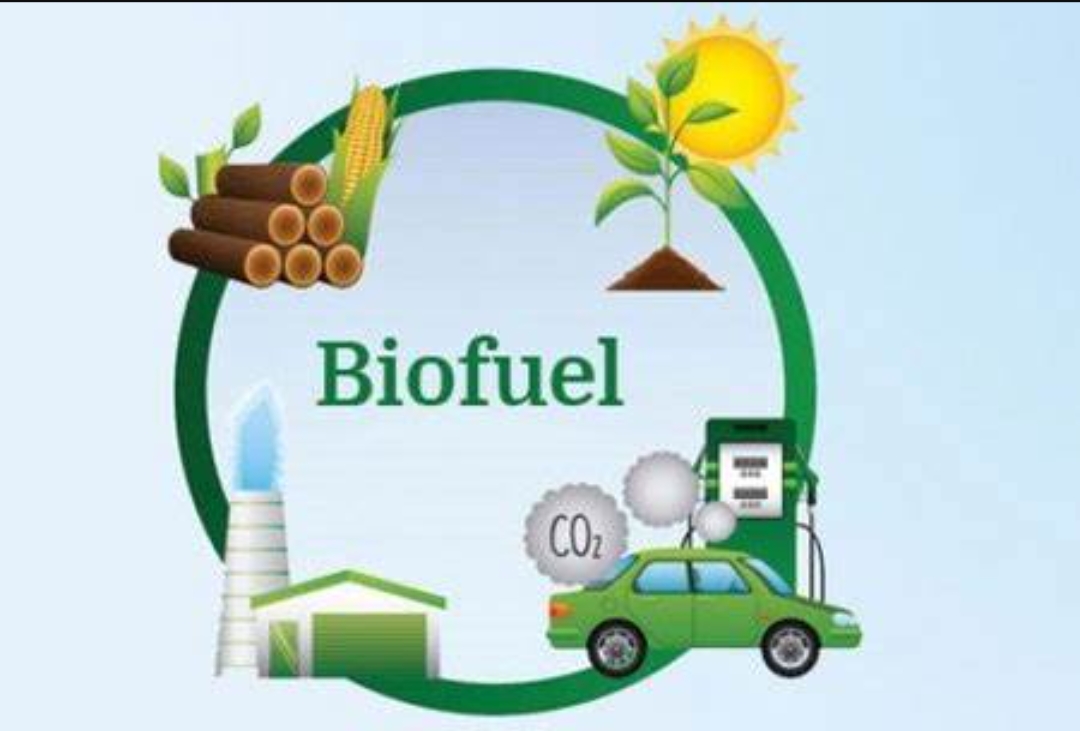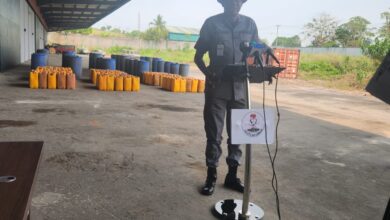CAPPA, 68 NGOs Urge International Maritime Organisation To Exclude Biofuels From Global Fuel Standard

Corporate Accountability and Public Participation Africa (CAPPA) and 68 other international nongovernmental organisations have warned the United Nations International Maritime Organization (IMO) against promoting biofuels as Global Fuel Standard (GFS) and an alternative to petrol in international shipping, saying it threatens rainforests and communities in host countries.
The NGOs, in an open letter to the IMO Secretariat on February 17, 2025, called on the IMO’s 176 Member States to oppose the promotion of biofuels in international shipping and commit to a future powered by clean energy.
They stressed that the design of the Global Fuel Standard should be based on stringent life cycle assessment guidelines that exclude the use of biofuels while protecting the climate, the environment, and the livelihood of people.
According to the IMO, the Global Fuel Standard is a technical measure to reduce greenhouse gas (GHG) emissions from ships and to help meet the IMO’s decarbonization targets.
The letter comes ahead of the IMO’s finalisation of its negotiations on key climate laws for international shipping, at a series of meetings in London.
The discussions will determine which fuels and technologies will power this sector, to limit shipping’s harmful environmental impacts and achieve its historic climate commitment.
According to the organisations, shipping consumes a massive 5 per cent of global oil production – more than any single country outside China and the US. However, some countries and companies are quietly planning to set rules that aim to replace most of this huge fossil fuel demand with biofuels.
“This risks causing even more climate and environmental damage than oil, not less,” the NGOs warned, adding that the IMO’s 176 member states “must exclude biofuels from the industry’s energy mix, due to their devastating impacts on climate, communities, forests and other ecosystems. These impacts include land and water grabbing, loss of food sovereignty, threats to food security, and widespread ecological harm. Instead, the IMO needs to prioritise real solutions for shipping, with clear policy incentives, including demand reduction and efficiency improvements.
“In July 2023, the IMO adopted the Revised GHG Strategy committing to net-zero GHG emissions by around 2050. One of the key policies to achieve this target is the Global Fuel Standard (GFS), which aims to incentivise the use of clean energy on ships, which the IMO promised to finalise in April 2025. Allowing the use of biofuels under the GFS would jeopardize the very goals the IMO seeks to achieve.”
The letter called out the Brazilian government, which will host the next United Nations Climate Conference (COP30) in Belém in November, as one of the key IMO members pushing for the uptake of biofuels in shipping as part of plans to increase the global market for its expanding biofuel industry.
CAPPA, Global Justice Ecology Project, Biofuelwatch, National Farmers Union (Canada), Earthjustice International, Proyecto Lemu (Argentina), Australian Forests and Climate Alliance, and the other signatories to the letter, noted that at the last round of IMO negotiations in October 2024, Brazil put forward biofuels as a long-term solution to power shipping but argued that this proposal would promote the use of unsustainable biofuels.
“Additionally, Brazil’s palm oil production is also expanding and has been linked to water pollution and large-scale land grabbing, much of it illegal. Now Brazil is looking at shipping as its next customer for biofuels, but the social and environmental costs linked to this market expansion would be catastrophic.
“Food- and feed-based biofuels are connected to deforestation, food insecurity, land and water grabbing and pollution from pesticides, all of which Brazil is already facing. Neighbouring countries are dealing with similar problems: recent studies show concern for the increased deforestation rates in Bolivia, Colombia, Ecuador, Peru, and Venezuela due to the expansion of cropland for soy, oil palm, cocoa, maize, rice, and cassava (Richens, 2024).”
The letter referenced studies showing that the direct and indirect land use change impacts of biofuels from vegetable oils, especially from soy and palm oil exceed the life-cycle emissions of fossil diesel.
“Wastes and residues, including animal fats, are in limited supply and existing demand far exceeds their availability. Furthermore, many of those residues and wastes have high indirect greenhouse gas emissions, due to competition between biofuels and other uses.
“Communities in many countries of the global South, including Colombia, Brazil, Paraguay, Argentina, Indonesia, Malaysia or Cameroon, are already facing the consequences of vast and rapidly expanding monoculture plantations of oil palm, soy and other crops in demand for biofuels.
This has devastating impacts on small farmers and indigenous communities, including effects on health due to the intense use of pesticides. We do not want to witness what could happen in those countries if biofuel production should escalate to meet the demand of such a giant – international shipping.”
Another consequence of the production of liquid biofuels, the NGOs, said, is that it risks exacerbating existing gender-based inequalities, and therefore contributing to the socio-economic marginalization of women, threatening their livelihoods and in particular their food security.
In conclusion, the groups said sustainable solutions for “decarbonization of the shipping sector already exist. These include improved energy efficiency through stricter standards and innovative ship designs, and the adoption of advanced propulsion technologies like wind assistance. Reducing the volume of goods transported by sea is also a vital step to reduce the environmental impact of global trade.”











